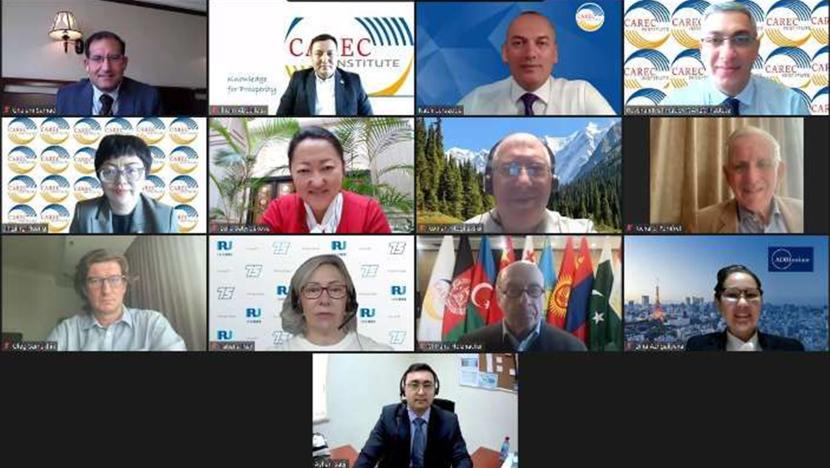At a key Central Asian ministerial conference, IRU outlined how the TIR system can drive decarbonisation.
During the 22nd Central Asia Regional Economic Cooperation (CAREC) Ministerial Conference in Georgia, IRU unpacked how road transport and intermodality can facilitate trade and reduce carbon emissions associated with freight transport.
IRU Director of TIR and Transit Tatiana Rey-Bellet said, “The reduction of waiting times at borders, a historic mission of IRU, boosts both the efficiency and sustainability of trade, reducing freight transport’s carbon emissions. It’s a quick but significant win, which simply requires adjusting border procedures based on cargo risk profiling.
“TIR Green Lanes, which are already used in the region, are meant for exactly this purpose. Having Green Lanes on both sides of the border will be a step towards joint border controls, which is the aim of several projects initiated in the CAREC region. The CAREC region is also the most advanced in TIR digitalisation, moving fast towards the implementation of eTIR.”
“Border crossing optimisation and digitalisation, combined with measures that ease the obtainment of permits and simplify visa issuance for professional TIR drivers are necessary actions which require coordination among all CAREC countries,” she added.
With the Middle Corridor dominating the discussions at the Conference, border facilitation and intermodal transport were identified as necessary immediate steps. IRU highlighted that all CAREC countries are active TIR users.
“TIR operators in China and Pakistan are increasingly exploring new markets within the CAREC region and beyond. TIR is intermodal and offers significant opportunities to maximise the efficiency and sustainability of trade and transit,” said Tatiana Rey-Bellet.
Green Compact
IRU also presented its Green Compact, a collective global action to achieve carbon neutrality in commercial road transport by 2050. It outlines a clear roadmap for the road transport industry to meet global decarbonisation targets while continuing to provide essential transport services.
“Our Green Compact research has found that a parallel focus on both efficiency measures and alternative fuels is key to decarbonising road transport. We must recognise the crucial importance of accelerating energy efficiency measures now to decarbonise commercial road transport,” said Tatiana Rey-Bellet.
Georgia’s Prime Minister, Irakli Garibashvili, and the Asian Development Bank’s President, Masatsugu Asakawa, opened the Conference. They stressed the need for intra-regional coordination to tackle decarbonisation and improve connectivity.
